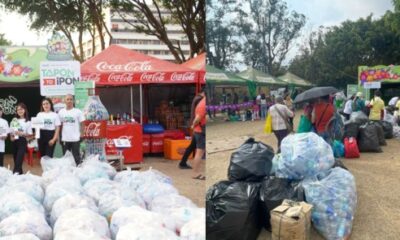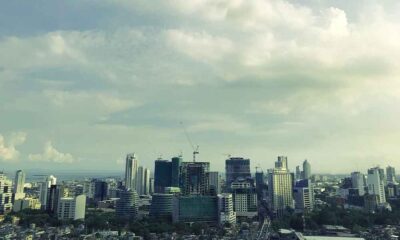Enterprise
Why Renewable Energy Is Not Taking Off in the Philippines: WWF-Philippines Report


A policy report published by WWF-Philippines has found that the growth of renewable energy in the country is hampered by several obstacles, the biggest of which is the long process of obtaining permits for renewable energy projects, even though the Energy Virtual One Stop Shop (EVOSS) was identified as one of the renewable energy transition enabler.
The report is based on two formal roundtable discussions organized by WWF-Philippines with representatives from government, civil society, and organizations in the public and private sectors.
“According to the participants of the discussions, the lengthy permitting process has been identified as one of the biggest obstacles to the deployment of renewable energy,” the report stated.
“Just at the initial stage, the requirement for renewable energy developers to secure numerous permits and signatures can already lengthen the permitting process, especially in view of the manner by which these documents have to go through different bureaus, divisions, and agencies. This process is further lengthened and complicated when these bureaus, divisions, and agencies have clarifications regarding the applications of the renewable energy developers,” the report stated.
Another challenge to the growth of renewable energy is insufficient promotion of renewable energy to both the private and public sectors leading to the lack of familiarity with the various renewable energy policies.
Participants also pointed out during the roundtable discussions that there are few incentives to entice investors to transition to renewable energy especially since the development of facilities has initially not been a cost-effective endeavor. One recommendation that came out during the discussions was the development of a clearer pathway and outlook in the renewable energy sector to guide prospective investors and to study the inclusion of additional incentives for investments on these technologies to come in.
The policy report and roundtable discussions are part of WWF-Philippines’ MoRE: Monitoring Renewable Energy Implementation in the Philippines Project which aims to boost the growth of the renewable energy sector.
The overall goal of the MoRE Project is for the country to transition to net-zero greenhouse gas emissions by accelerating applications of renewable, low-carbon, and no-carbon energy sources to fulfill the country’s energy demands.
The MoRE Project, in close coordination with government, civil society, and other industry partners, aims to enhance policy processes, particularly addressing gaps in monitoring the status and performance of renewable energy policies. The project seeks to determine the challenges encountered by policymakers in the development and implementation of various renewable energy mechanisms.
The project’s ultimate goal is to come up with a monitoring tool that will aid in the advocacy for increased renewable energy share in the country’s energy mix by enabling an efficient exchange of information between and among relevant government agencies and policymakers.
Geraldine Anne Velasco, WWF-Philippines’ MoRE Project Manager, said “Monitoring renewable energy implementation is necessary for us to know what has been accomplished and to understand what still needs to be done to achieve our goals or even go beyond the target for 2030, which is 35% renewable energy share in the generation mix.”
“This report could serve as a guide for stakeholders to the policies promoting renewable energy, which could be useful in making the necessary revisions or adjustments to these policies, if any,” she added.
Renewable energy investments have already saved the Philippines PHP4.04 billion, according to a Philippine Electricity Market Corporation (PEMC) report in 2017. WWF-Philippines said that offsetting the cost of expensive fossil fuels saved each Filipino consumer 5.67 centavos, while generating local jobs and reducing the country’s share of carbon emissions by an impressive 2.8 million tons.
Clean and renewable energy sources like geothermal, hydro, wind, biomass, and solar energy are among the country’s few competitive advantages – especially since the Philippines has no significant deposits of fossil fuels. Its continued dependence on imported fuel has made Philippine electricity rates among the highest in Southeast Asia.
WWF-Philippines’ Head of Climate and Energy Program Atty. Angela Ibay said “There is an urgent need for all stakeholders in the energy sector to come together to address obstacles to the growth of the renewable energy industry so that we can accelerate the transition away from fossil fuels.”
“Having a stable and robust renewable energy sector will be a great benefit to all Filipinos because it will provide cheaper electricity prices as well as provide a buffer against the volatile global oil supply market,” Ibay added.
Representatives from the National Renewable Energy Board, Energy Regulatory Commission, National Grid Corporation of the Philippines, National Electrification Administration, Philippine Electricity Market Corporation, National Transmission Commission, the Board of Investments, among others, were among the attendees of the roundtable discussions.

































